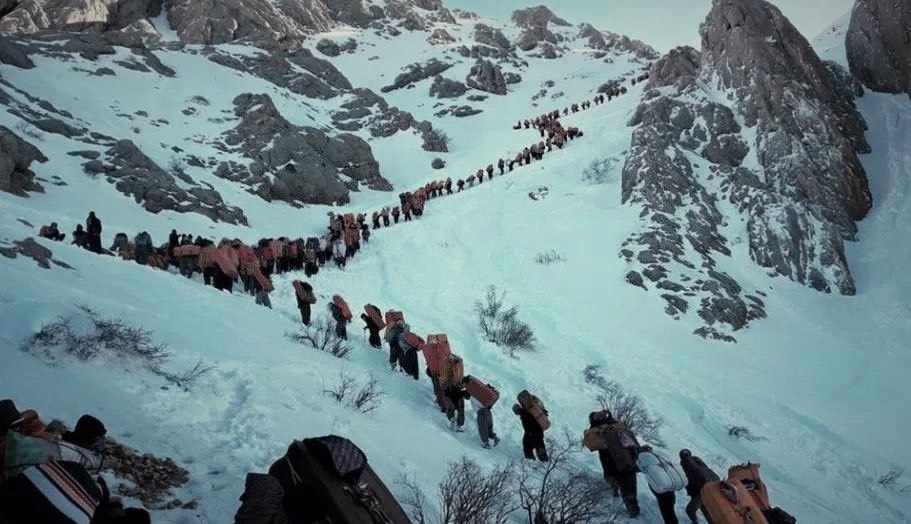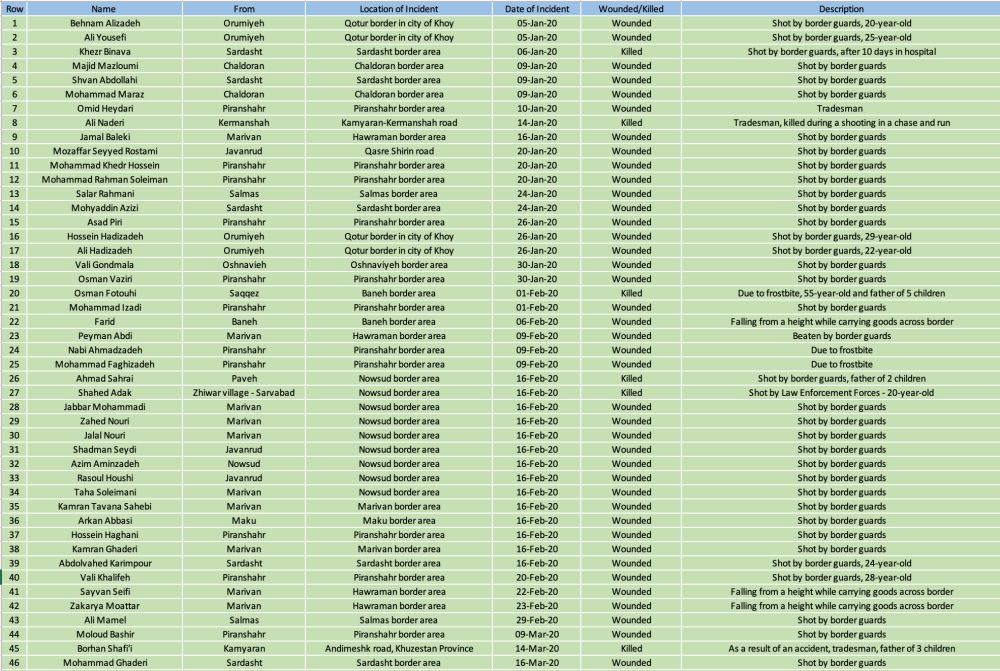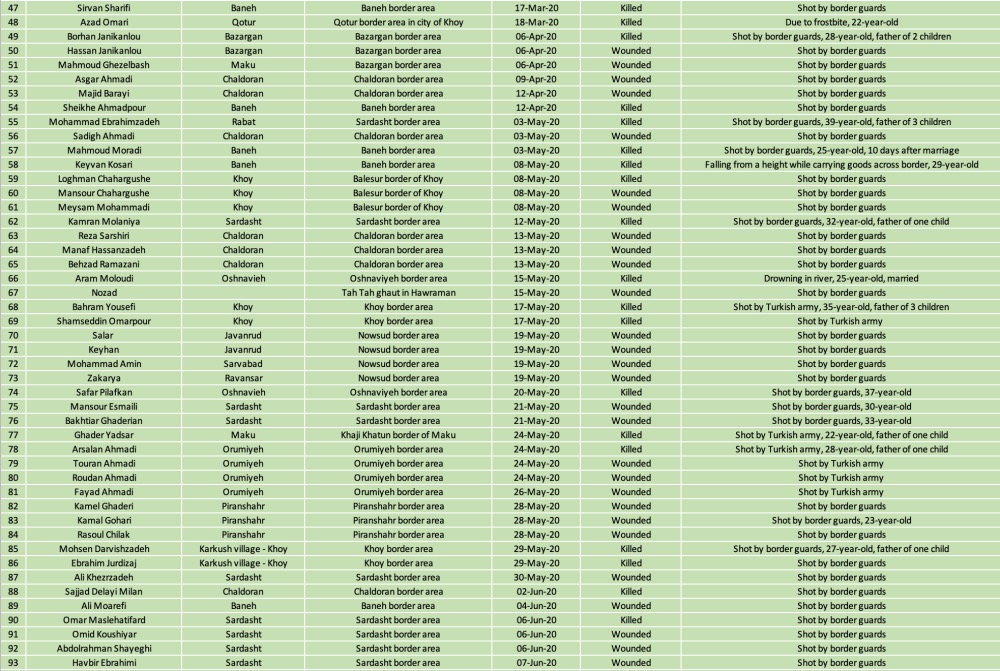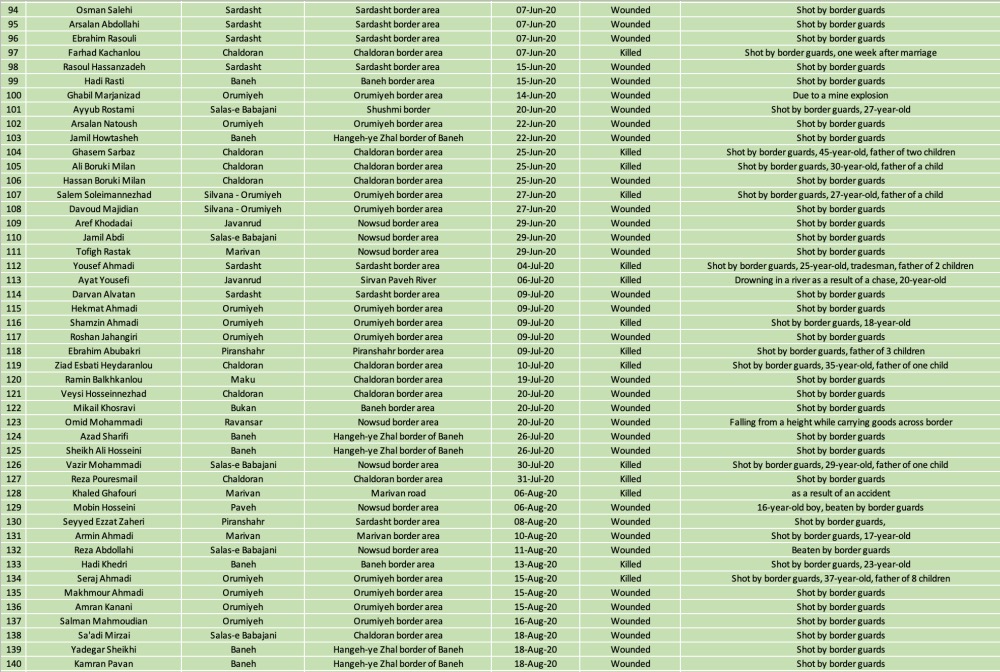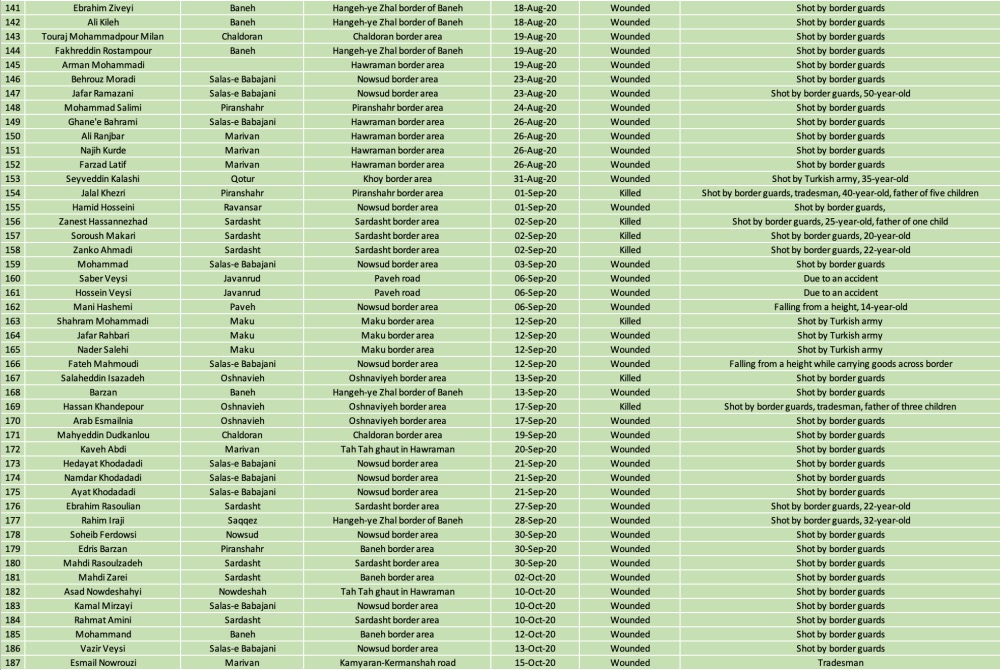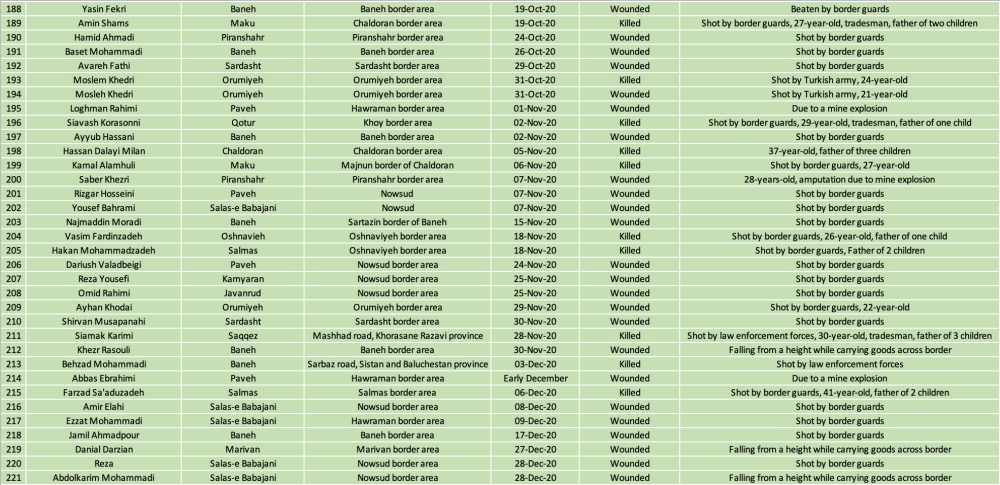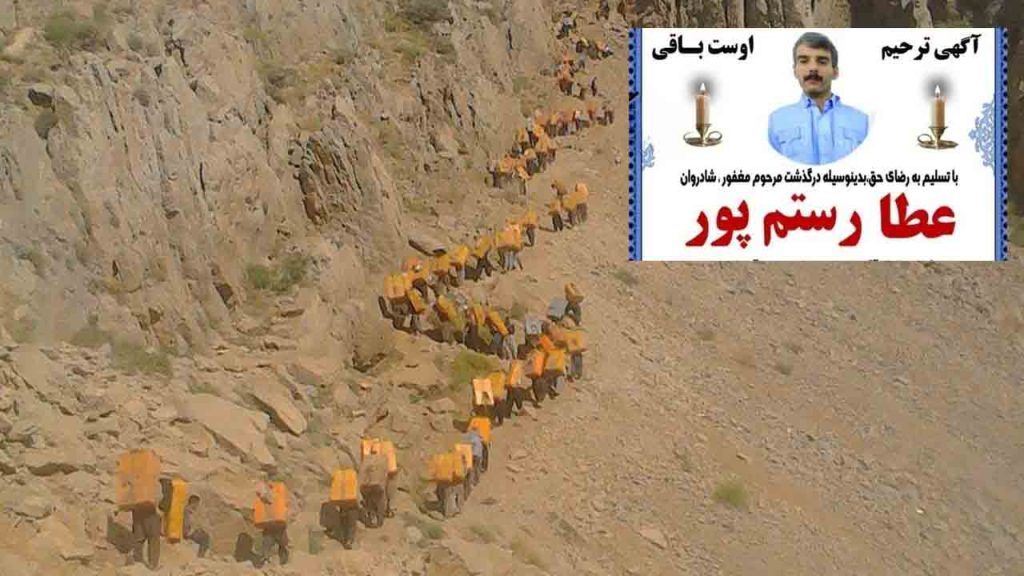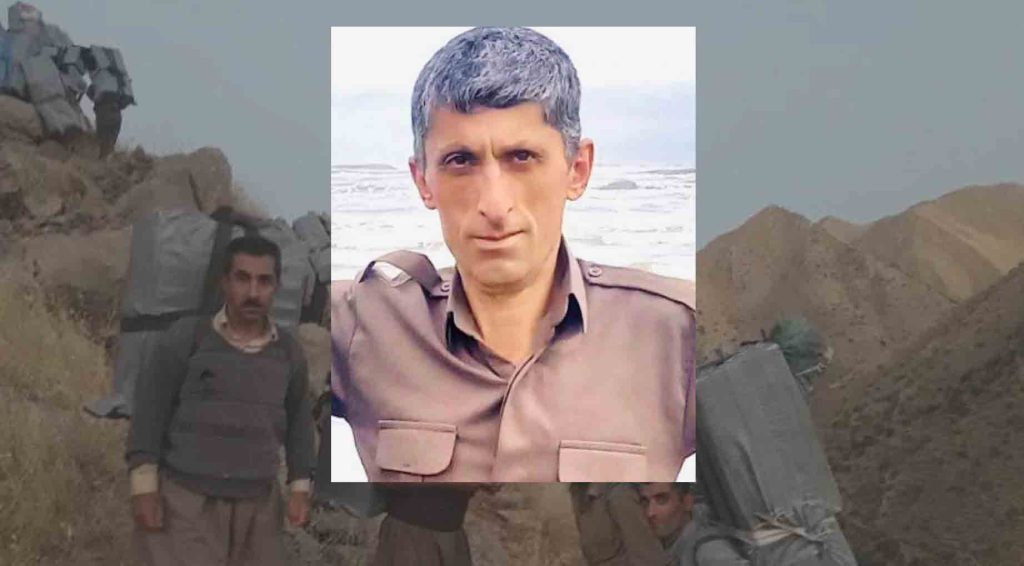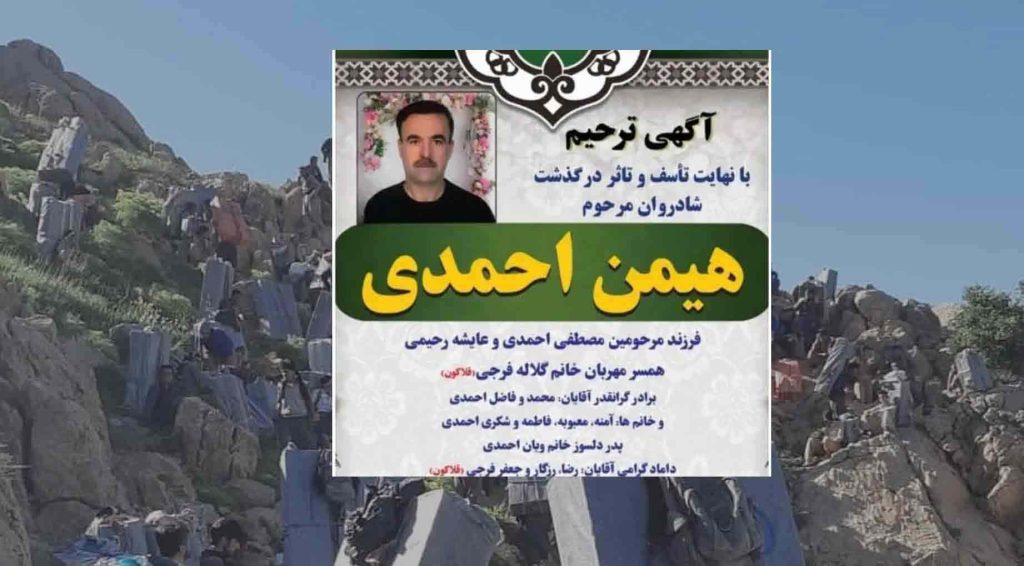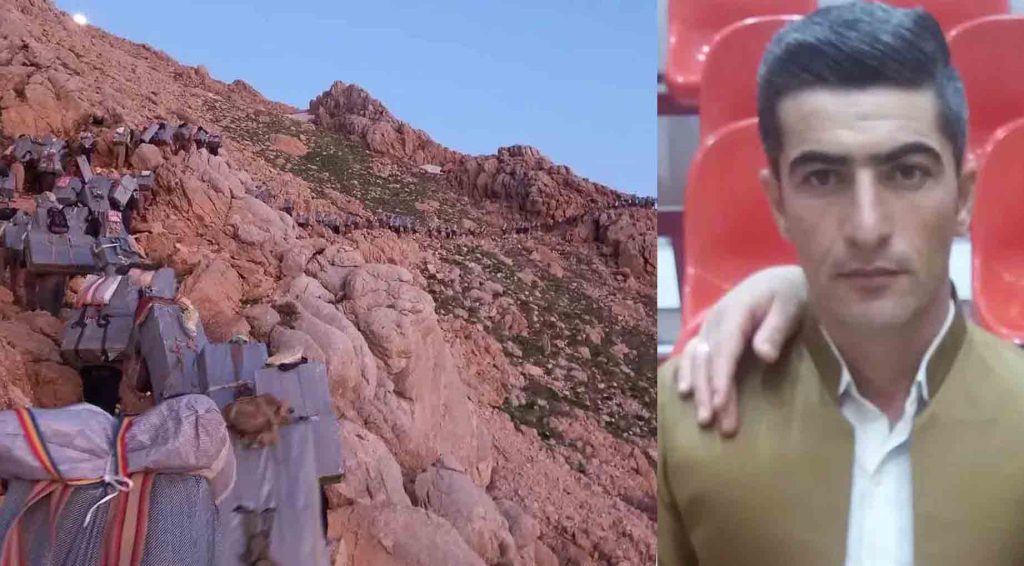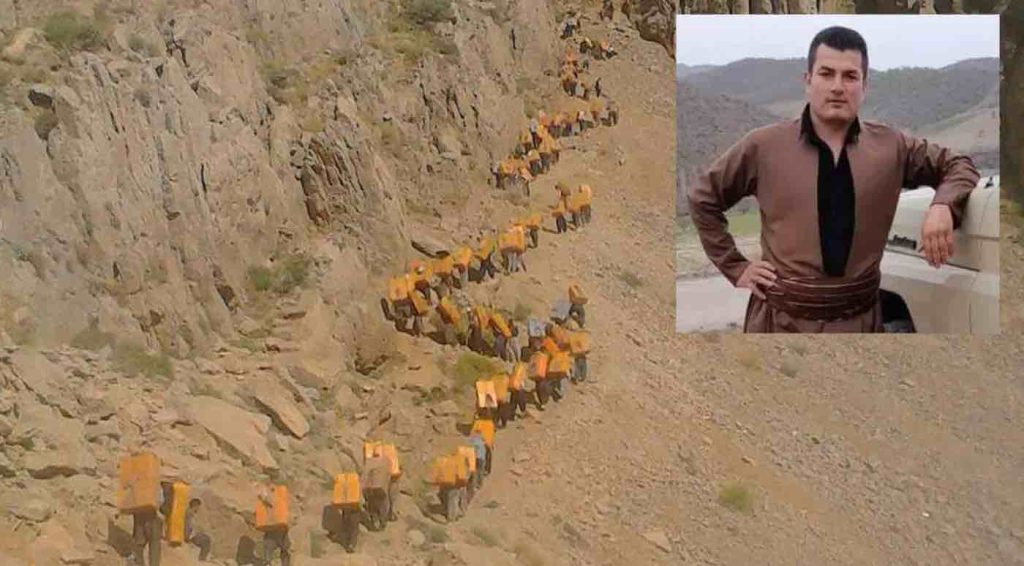Paris, 1 March 2021 – The data compiled by the Kurdistan Human Rights Network (KHRN) suggest that in 2020, at least 52 Kurdish civilians, who were left with no other choice but to carry goods on their backs – also known as kolbari – between the border areas of Iran, Kurdistan Region of Iraq, and Turkey to earn a living for their families, have either been killed by Iranian and Turkish military forces or have lost their lives due to natural disasters and insecurity of the routes they passed through. Another 147 have been injured throughout the year.
According to these statistics, 40 kolbars were shot dead by the Iranian military forces in the provinces of West Azerbaijan, Kurdistan, and Kermanshah, and six were killed by the shooting of the Turkish border forces in the border areas of the West Azerbaijan province. Six other kolbars also lost their lives due to car accidents, drowning in rivers, landmine explosions, and falling from border heights.
Furthermore, three Kurdish tradesmen were killed on the roads of Kurdistan, Khorasan-e Razavi, and Sistan and Baluchestan provinces as a result of shootings of law enforcement officers. Another tradesman also lost his life in an accident in Khuzestan province.
According to these statistics, at least 147 kolbars – including a child kolbar – were wounded by the shootings of the Iranian and Turkish military forces. Also, 15 kolbars were injured in car accidents and natural disasters. Moreover, three kolbars, one being a child, were beaten by Iranian border guards.
However, these killings were not limited to kolbars and traders in the border areas. As a result of the shootings by anti-smuggling forces in Sarvabad and Baneh cities of Kurdistan province, two civilians named Saadi Rostamzadeh, 36-year-old and the father of one child, and Khosrow Sharifi, 29-year-old and the father of one, were killed.
In an interview with the families of the victim kolbars, KHRN found out that judicial authorities have so far refused to consider their complaints. At least five families of the kolbars told the KHRN that the delivery of the bodies of the kolbars was conditional on making no complaints against the military forces. Therefore, they have not been able to file a complaint against these forces.
In the morning of 31 August,2020, three kolbars Zanko Ahmadi, Zanest Hassannezhad, and Soroush Mokari were killed in a shooting by Iranian border guards in the Bazhar region of Sardasht. Two days later, in an interview with Iranian state media, the West Azarbaijan border commander described the killed kolbars as “border trespassers” and defended the killing of these individuals by the forces under his command.
The documents, including videos and photos, provided to the KHRN show that between 0500 and 0600 local time on 31 August, a convoy of kolbars were shot with machine guns from a distance of several meters by the forces of the Bardehpan border checkpoint of Sardasht in Bazhar region – a few kilometers from the Iranian border with the Kurdistan Region of Iraq. As a result, Zanko Ahmadi, 27-year-old and father of one, Zanest Hassannezhad, 25-year-old and father of one, and the 20-year- old Soroush Mokari, were killed.
Moreover, on 28 May, after the killing of two Kurdish kolbars named Mohsen Darvishi and Ebrahim Jourdizaj in the border areas of Khoy in West Azerbaijan province, several eyewitnesses provided information about the incident in an interview with the KHRN. According to these witnesses, a group of four kolbars were carrying cigarettes on horseback along the border village of Karkoush and towards the Turkish border, where they were ambushed by border guards at around 2200 localtime. As the four kolbars surrendered and lay on the ground, border guards fired at them from a distance of several meters. As a result of this shooting, Mohsen Darvishi and Ebrahim Jourdizaj were killed on the spot and the other two kolbars fled the scene.
Distributing the data based on provinces shows that Iranian and Turkish military forces have killed at least 39 kolbars in the border areas of West Azerbaijan province, four in Kurdistan province, and three in Kermanshah province. As nine and eight kolbars were killed in Chaldoran and Sardasht counties respectively, these areas were the deadliest border crossings for kolbars in 2020.

